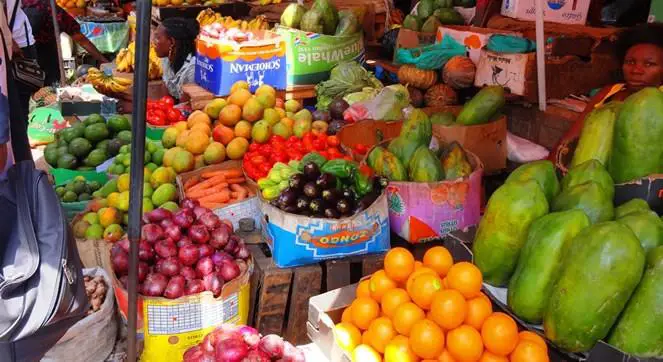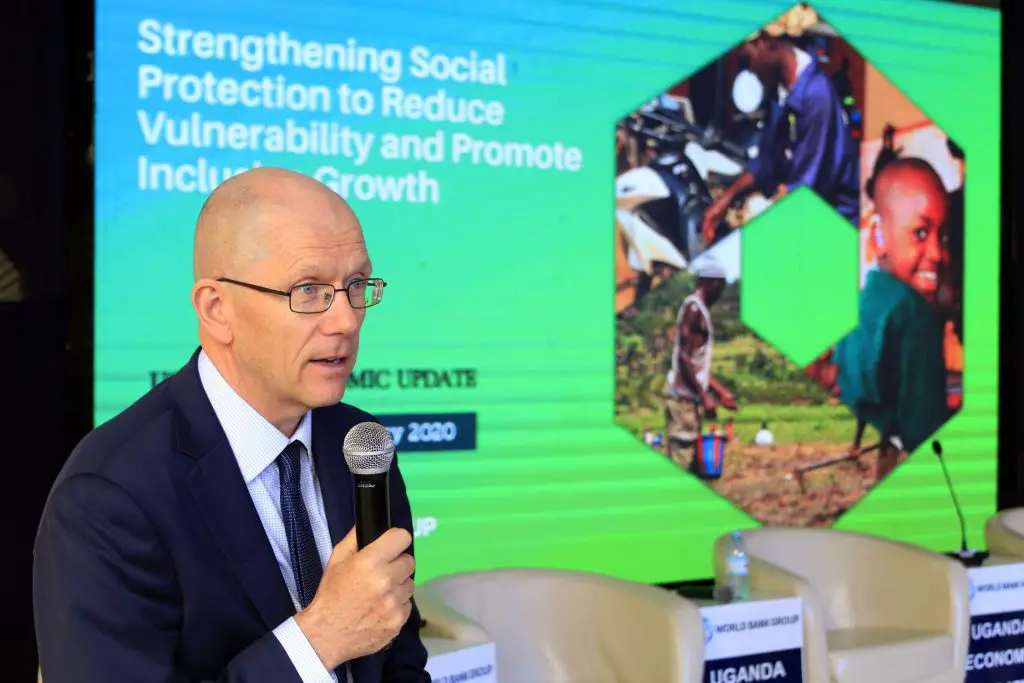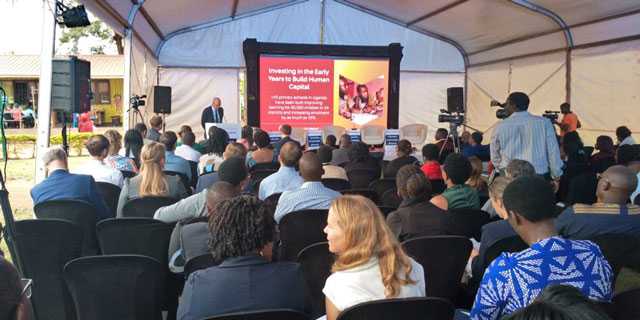- The silent struggle: Women entrepreneurs in Africa and the financial divide
- Questions and answers on confirmation of war crime charges against Joseph Kony at the ICC
- The critical need for energy access in Africa: A roadmap to prosperity
- Killings, abductions, cruel laws worsen East Africa’s human rights record
- Will the Kampala Declaration deliver for African farmers amid climate change?
- Investments in ports, ICT and agriculture key in landmark Kenya-UAE trade pact
- The Just Energy Transition in Africa: Lessons from South Africa and Senegal
- Mukuru Wallet poised to bolster financial inclusion in Zimbabwe
Browsing: Uganda’s economy
The agriculture sector in Uganda is estimated to have contracted by close to 1 percent due to reduced export demand associated with COVID-19 restrictions and decreased output caused by the regional desert locust invasion.
This is according to a study conducted by Deloitte which reveals that agriculture remains a key economic sector and one of the largest employers in the country, responsible for 70.3 percent of the labour force (with the majority in subsistence farming) and accounting for almost 28 percent of real GDP.
The study says that 2020 saw a significant decline in effective domestic demand for food following the closure of schools and the hospitality industry.
The massive loss of employment further led to reduced household incomes with consumers opting for less food and cheaper, less nutrient-rich food items.
It also finds that the number of food insecure people in the country increased by 1.1 million to 16.4 …
Uganda’s agricultural prices improved by five per cent as the economy begins to recover gradually in the third quarter of 2020.
This is according to a report by the Uganda Bureau of Statistics which noted that food crop activities registered a growth of 4.3 per cent in 2019/2020 compared to the 1.5 per cent growth in 2018/19.
In 2019/2020, Uganda’s livestock activities grew by 7.7 per cent compared to 7.3 per cent in 2018/19.
Speaking during a thought-leadership forum hosted by the Centenary Bank under the theme “ Interventions for Agribusiness Development” the Chief Manager Agribusiness at the bank said “The 5 percentage points price improvement, is largely attributed to the gradual recovery of activities in the agricultural sector and the economy as a whole, case in point is the improved price of Matooke and other foodstuffs.”
He also added that financing is instrumental in boosting agricultural activities and the …
Uganda will find itself with a crisis of more workers than jobs unless the country’s economy grows faster than its current pace world bank report says.
According to “Uganda: Jobs strategy for inclusive growth” a new World Bank report released early last week, Uganda has seen more than 300,000 additional workers enter the job market per year between 1992 and 2014. Between 2030 and 2041, the number is set to rise to over one million annually.
The report said that With the country’s growing population, an economic transformation that will create jobs creation requires faster urbanisation with industrialisation, which should start with the developing commercial agriculture.
Also Read: World Bank restitutes relations with Somalia
The agricultural sector in Uganda accounts for around 80 per cent of the annual export earnings and employs nearly 82 per cent of the workforce.
Three-quarters of young Ugandans entering the labour market work in agriculture …
The Bank of Uganda held its benchmark interest rate yet in an effort to keep inflation down and below target and to support economic growth.
The central bank rate (CBR) was kept unchanged at 9 per cent, initially set in October 2019 and maintained in December. The band on the CBR was maintained at positive or negative 3 percentage points while the rediscount rate remained at 13 per cent and the bank rate remained 14 per cent.
“The evaluation of the macroeconomic developments and outlook based on the available information set suggests that, at the current CBR, the monetary policy stance is accommodative and that inflation will converge to target in the medium term while supporting economic growth,” said the monetary policy statement explaining the decision.
The Bank said that Uganda’s economy is expected to expand at between 5.5 and 6 per cent in the 2019 fiscal year, which runs …
Stanchart released the outlook for the EAC three big economies – Uganda, Kenya and Tanzania.
According to the outlook report, the bank lowered Uganda growth forecasts to 6.0 per cent in 2020 and 6.2 per cent in 2021.
According to the report, although it is difficult to assess the full impact of the regional locust invasion, food prices have already been pressured due to flooding especially in eastern Uganda in December last year.
“We now expect the Bank of Uganda to keep its policy rate on hold at 9.0% throughout 2020 having previously seen scope for more easing,” said part of the report.
The report adds that they project the Bank Of Uganda (BoU) will adopt a tighter policy stand to control inflation given the 2021 elections and the rising caution over the extent of the government’s public financing requirement.
Stanchart’s chief economist for Africa and the Middle East, Razia …
Uganda’s GDP grew faster than initially predicted in the 2018-2019 fiscal year, but the growth is still not fast enough for the government’s lower-middle-income status and poverty reduction ambitions.
The World Bank said that data estimates released in 2019 by the Uganda Bureau of Statistics show that real GDP increased at an annual rate of 6.5% in 2018-2019, higher than its previous estimate of 6.2%.
According to the bank, the expansion maintains the rebound in economic activity recorded over the last two years. It was “driven by strong levels of domestic consumption and sustained levels of public and private investment.”
In its 14th Uganda Economic Update report, the World Bank said that the Net foreign direct investment inflows rose to 5.1 per cent of GDP in 2018-19 from 3 per cent the previous year.
Also Read: One stop border to boost Uganda, South Sudan trade
“The construction sector continues to …
Uganda’s economy grew by 6.5 per cent in the fiscal year 18/19, maintaining the rebound in economic activity over the last two years, according to the latest edition of the Uganda Economic Update released by the World Bank.
The 14th Uganda Economic Update report, “Strengthening Social Protection Investments to Reduce Vulnerability and Promote Inclusive Growth” shows that the country’s economy was boosted by strong consumer spending and sustained levels of public and private investment.
The World Bank advised that in order to control shocks and support more inclusive growth, Uganda’s government should expand social protection programs to areas with the highest levels of vulnerability and risk.
“Recent favourable weather and stronger agricultural growth has contributed to the recovery of household incomes and lowered the estimated poverty levels down to those observed in the 2012-2013 fiscal year. However, environmental shocks and climatic risks can quickly reverse this trend.” said the report.…











